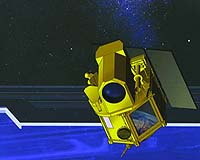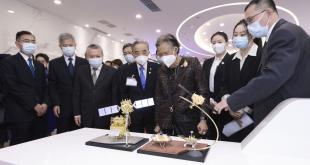
The Thai space agency, the Geo-Informatics and Space Technology Development Agency (GISTDA), has selected France’s Airbus Defence and Space to build the Thailand Earth Observation Satellite (THEOS) II, to replace the THEOS-I satellite also built by Airbus but which went out of service in 2015.
The GISTDA choice of Airbus for THEOS-II, along with its proposed 7.8 billion Baht (approximately U.S.$247 million) was expected to be approved by the Thai cabinet on February 6, 2018.
THEOS-I was launched in 2008 and came to the end of its operational life in 2015.
“The advanced technology of Theos II will help the country verify and manage big data regarding agriculture and land management to serve the government’s policy on smart farming and smart cities, including technology transfer to strengthen the country’s space industry development,” said Prajin Juntong, Thai Deputy Prime Minister and head of the National Space Policy Committee.
THEOS-I, and its proposed replacement THEOS-II, are a critical part of Thailand’s natural resources and agricultural policies since the Earth observation capability has proven effective for land and water management, climate change monitoring, and agricultural developments.
The expected announcement approving THEOS-II is part of a bigger push by the Thai government to develop its high technology sector, and its space programme in particular.
As well as the THEOS-II announcement, the Thai government is also expected to announce that it will build its first ever indigenously built satellite for space-based Space Situational Awareness (SSA).
Also of significance, the GISTDA budget is now 1 billion Baht (U.S.$30 million) a year as of 2017, compared to 200 million Baht (U.S.$6,342,000) a year in 2010.


